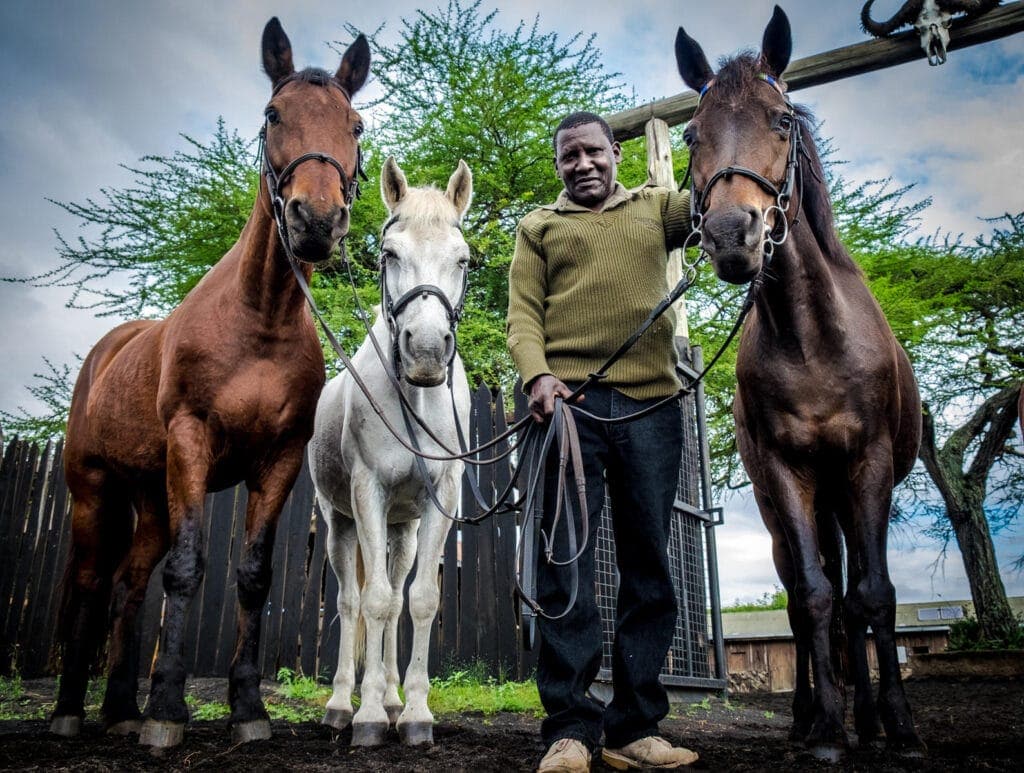Viewing wildlife during a horseback safari in Africa can be thrilling. Prepare for the journey ahead of time to ensure you are safe and have fun. Try these valuable tips for a smooth horseback safari – from dressing appropriately for changing weather conditions to understanding and respecting wildlife.
How To Stay Safe While On Horseback
Safety during a horseback safari is influenced by your surroundings and horse riding skill level. Most safari operators cater to families with beginners as well as seasoned riders who are ready to make the most of a gallop across the Serengeti.
Where to Enjoy the Best Horseback Safari
You can experience some of the best horseback riding safaris in Botswana’s Delta, Kenya’s enchanting Masai Mara, and South Africa’s diverse environments. But varying landscapes can mean exposure to the elements, and the weather in Africa can be unpredictable. This seasonal safari calendar can help you decide when and where would be the best time for you to plan your horseback safari.

From sunny afternoons to chilly evenings and potential rainfall, varying weather conditions will be part of your journey.
- Learn more about the climate of your destination and the expected weather conditions during your travels.
- Dress in layers to quickly adjust to temperature changes. Choose moisture-wicking fabrics for cool comfort and warmth in cold weather.
- A high-quality sun hat can protect you from the intense African sun, and a waterproof, breathable jacket is essential for sudden showers.
- Comfort is key to an enjoyable trip. Breathable, protective riding gloves can prevent blisters, and sunglasses with UV protection can shield your eyes from dust and sunlight.
What Skill Level Suits Your Group Best?
Being upfront and honest about your riding experience ensures your safety and that of the group. Horseback safaris cater to different skill levels:
- Inform the tour operator of your actual experience. They can match you with a horse that complements your riding ability, ensuring confidence and control.
- If you are a beginner, consider taking riding lessons before your trip. By getting comfortable in the saddle and learning the fundamental commands, you can make the most of your experience.
What Pre-Safari Horse Orientation Can You Do?
Getting to know your horse is the first step to a smooth ride. These beautiful animals are more than just rides; they are part of your safari adventure.
- Spend time with the horse assigned to you. Learn its signals, how it responds to commands, and its unique characteristics.
- Feed and groom your horse, if permitted. These interactions build trust, making the horse more cooperative and calm during the safari.
Put Your Safety First

Africa’s wilderness has its dangers and safety measures are essential.
- Protective gear, including helmets and boots, is non-negotiable for preventing injuries.
- Maintain a safe, respectful distance from wildlife to avoid aggravating them.
- Listen and follow your guide’s instructions. Your safety depends on their knowledge of the local landscape and its wildlife.
- You’ll want to capture your horseback safari experience. Be sure to use a strap or harness for your camera. Practice taking pictures from horseback before your trip, as balancing and focusing require skill and familiarity with your equipment.
Respect Wildlife and Their Habitat

Your safari lets you experience the natural world, which needs to be respected so that it stays in balance and is protected.
- To avoid disturbing or frightening the animals, observe quietly with minimal noise and movement.
- Never attempt to feed wildlife; human food can cause health issues for animals and alter their natural behaviour.
- Stick to established trails to prevent habitat destruction, reducing your impact on the ecosystem.
- Avoid using flash photography.
How to Enhance Your Wildlife Viewing Experience
An immersive experience is about understanding and connection, not just observation.
- Early rides facilitate encounters with nocturnal species and observe diurnal animals’ morning routines.
- Carry binoculars for close-up views.
- Educate yourself about the local wildlife, ecosystems, and conservation efforts. This will make interactions more interesting and encourage responsible behaviour.
How to Ensure a Comfortable Ride

You can’t have fun without feeling your best, so here are a few tips to ensure you’re in tip-top shape on your journey.
- Keep your energy up with snacks and water for easy on-the-go hydration.
- Apply sunscreen and insect repellent liberally and reapply as needed.
- Assess your fitness level; strengthening your core and stamina enhances balance, control, and endurance in the saddle.
By staying safe, understanding your horse, and respecting wildlife, you can ensure that your safari is both enjoyable and responsible.
Author: Chrizaan Troch
Published:
Last Update:
Part of the Horseback Safaris Collection